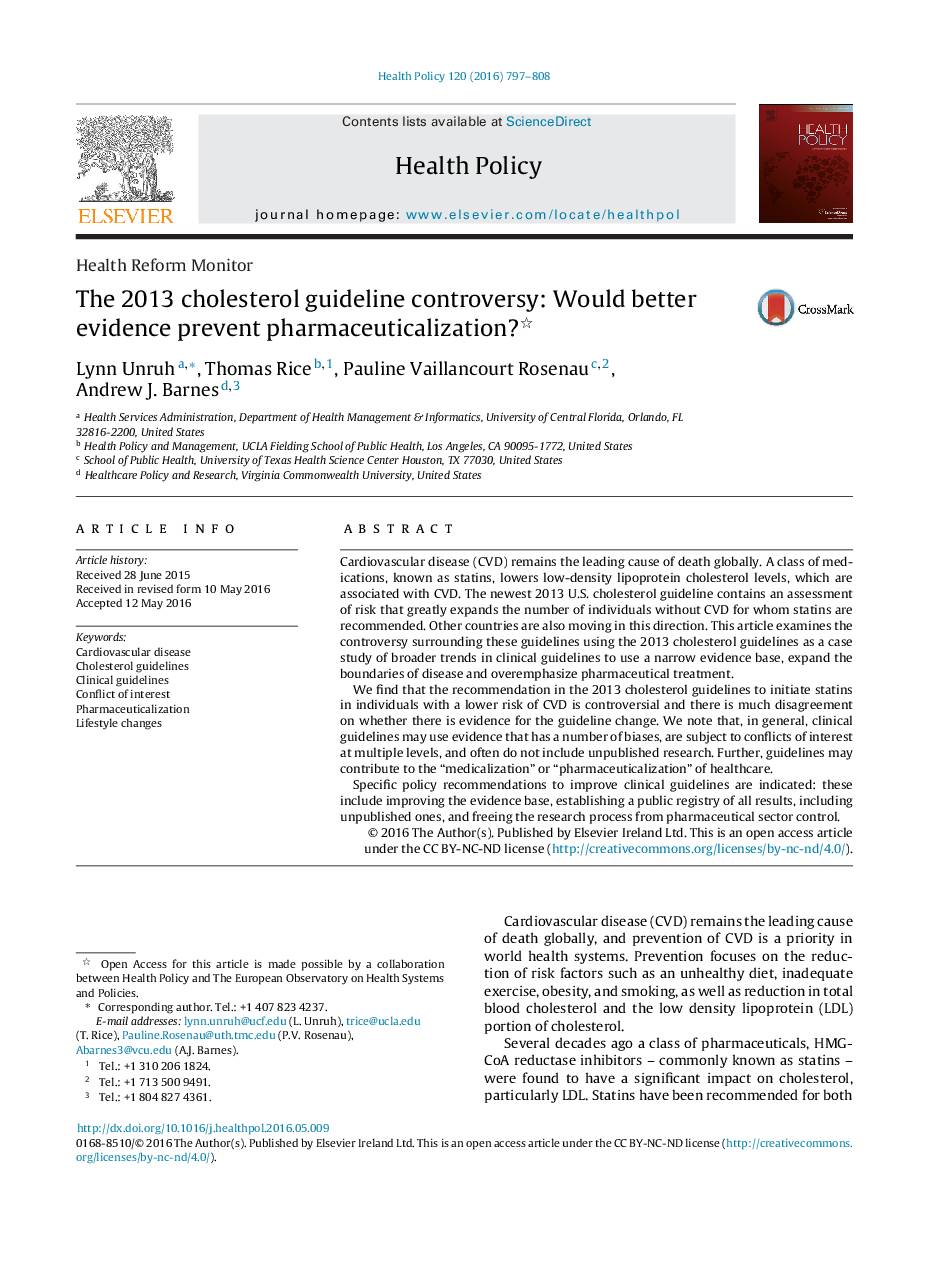| کد مقاله | کد نشریه | سال انتشار | مقاله انگلیسی | نسخه تمام متن |
|---|---|---|---|---|
| 6238901 | 1278977 | 2016 | 12 صفحه PDF | دانلود رایگان |
- The 2013 U.S. cholesterol guideline recommends the use of statins for primary prevention of CVD in low risk individuals.
- This expands the number of patients for whom the use of statins is recommended.
- The recommendation has been controversial due to disagreement about the robustness of the evidence base.
- Pharma is involved in the development of clinical guidelines - from trial design to data analysis to meta-analysis of studies.
- Policies could reduce the influence of Pharma on the research process and prevent pharmaceuticalization.
Cardiovascular disease (CVD) remains the leading cause of death globally. A class of medications, known as statins, lowers low-density lipoprotein cholesterol levels, which are associated with CVD. The newest 2013 U.S. cholesterol guideline contains an assessment of risk that greatly expands the number of individuals without CVD for whom statins are recommended. Other countries are also moving in this direction. This article examines the controversy surrounding these guidelines using the 2013 cholesterol guidelines as a case study of broader trends in clinical guidelines to use a narrow evidence base, expand the boundaries of disease and overemphasize pharmaceutical treatment.We find that the recommendation in the 2013 cholesterol guidelines to initiate statins in individuals with a lower risk of CVD is controversial and there is much disagreement on whether there is evidence for the guideline change. We note that, in general, clinical guidelines may use evidence that has a number of biases, are subject to conflicts of interest at multiple levels, and often do not include unpublished research. Further, guidelines may contribute to the “medicalization” or “pharmaceuticalization” of healthcare.Specific policy recommendations to improve clinical guidelines are indicated: these include improving the evidence base, establishing a public registry of all results, including unpublished ones, and freeing the research process from pharmaceutical sector control.
Journal: Health Policy - Volume 120, Issue 7, July 2016, Pages 797-808
